Simple hotel room inspections reduce unexpected costs and improve overall comfort during stays.
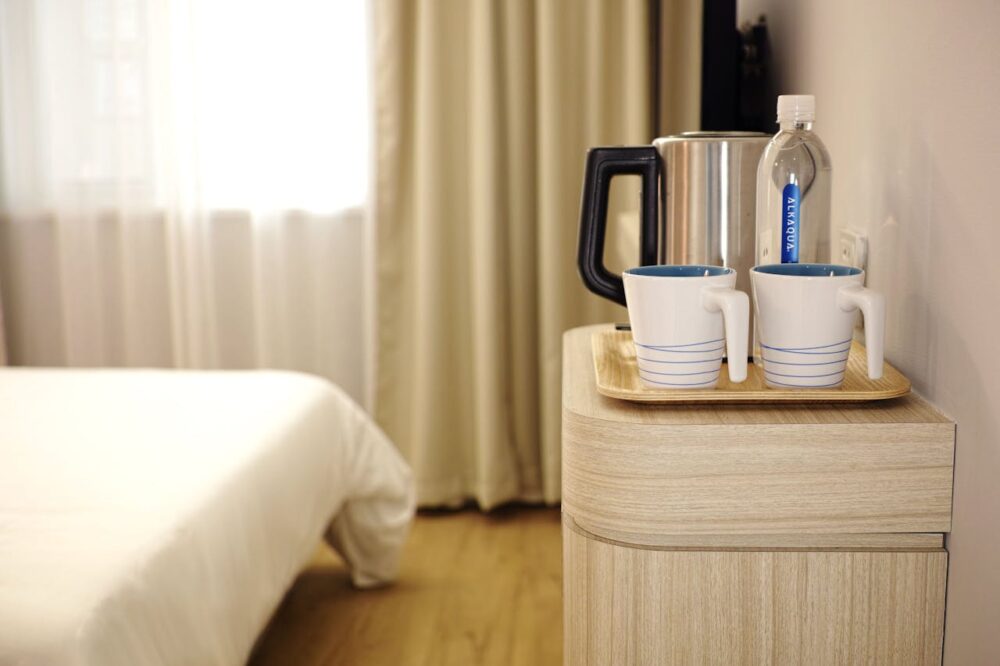
When traveling, a few quick checks in your hotel room can prevent surprises and ease your mind. From confirming rates and examining cleanliness to testing amenities and security features, these steps help you avoid hidden fees and discomfort. Taking a proactive approach ensures your stay is comfortable, secure, and aligned with what you booked—all without added stress or expense.
1. Verify the room rate matches your booking confirmation exactly before you settle in.

Before unpacking, confirming the room rate aligns with your booking is essential. In some cases, discrepancies occur between the expected rate and what is presented. A brief phone call or conversation at the front desk can effortlessly resolve these issues before they escalate.
Such discrepancies might stem from overlooked fees or miscommunications during booking. Addressing them statically at the beginning of your stay ensures transparency and keeps unexpected charges at bay, as reported by Medium.com. Initiating this conversation early leaves you with one less concern as you settle into your temporary home.
2. Inspect the room for any visible damage or cleanliness issues upon arrival.

On arrival, examine the room for visible damage or cleanliness concerns. Take a close look at surfaces, linens, and fixtures. A stained carpet or chipped furniture may seem minor, but these details suggest how the hotel maintains its spaces.
Identifying issues proactively allows the hotel staff to address them swiftly. Promptly communicating problems can result in room changes or repairs that enhance comfort. Observant moments early can ensure a smoother and more pleasant stay, preventing discomfort or dissatisfaction, according to Travelers Unite.
3. Test the air conditioning and heating systems to ensure they work properly.
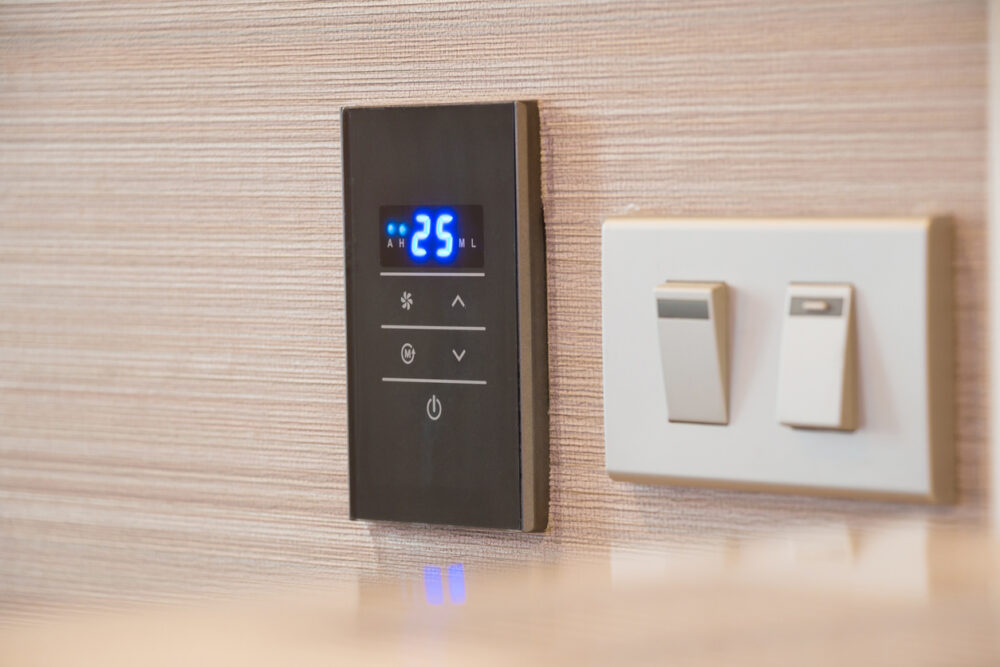
Air conditioning and heating systems require a quick test. Adjust temperature settings and listen for unusual sounds that may indicate malfunction. A climate-controlled room ensures comfort, regardless of the season.
Unexpected issues with these systems can lead to uncomfortable nights or restless sleep. If problems arise, requesting maintenance or alternative accommodations promptly protects your comfort, Reader’s Digest suggests. A calm and constant climate promotes restorative and undisturbed rest throughout your stay.
4. Check the Wi-Fi speed and connectivity in the room before relying on it.
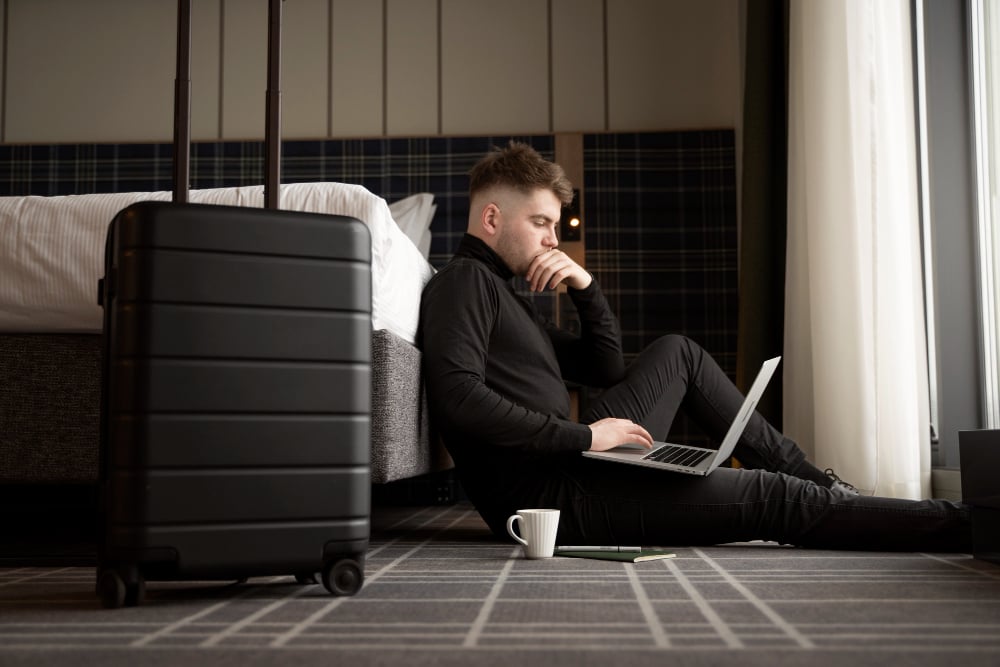
Wi-Fi speed and connectivity should be tested as soon as you settle in. Connectivity is crucial for staying connected, whether for business or leisure. Load a few web pages or try streaming a video to assess the connection’s robustness.
If the Wi-Fi is unreliable, wasted time during crucial moments can cause frustration. The hotel might offer solutions, such as a wired connection or router reset, refining your digital experience. A seamless connection avoids unnecessary hurdles in maintaining workflows and entertainment needs.
5. Confirm that all included amenities, like toiletries and towels, are present.
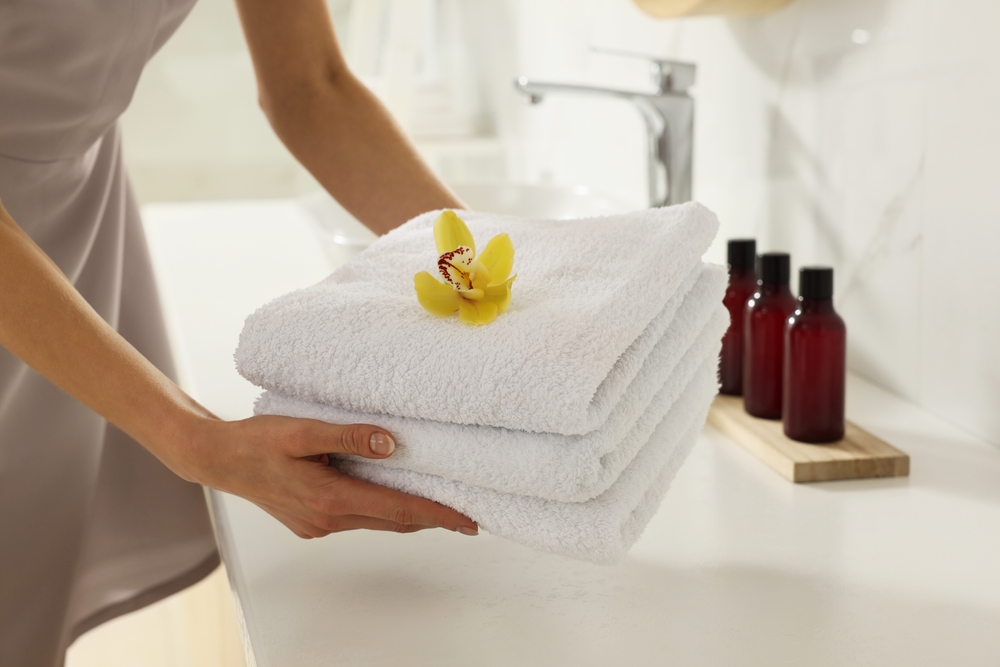
Ensure all included amenities, like toiletries and towels, are available in the room. Open the bathroom cabinet and check drawers for missing items. An incomplete setup may disrupt your routine unexpectedly.
When amenities fall short, an immediate call to guest services can resolve it with prompt delivery. Hotels typically address such requests swiftly, elevating convenience and satisfaction. Having all necessary amenities at hand supports a smooth and relaxing stay, free from small but significant inconveniences.
6. Ensure the room’s locks and security features function smoothly for peace of mind.
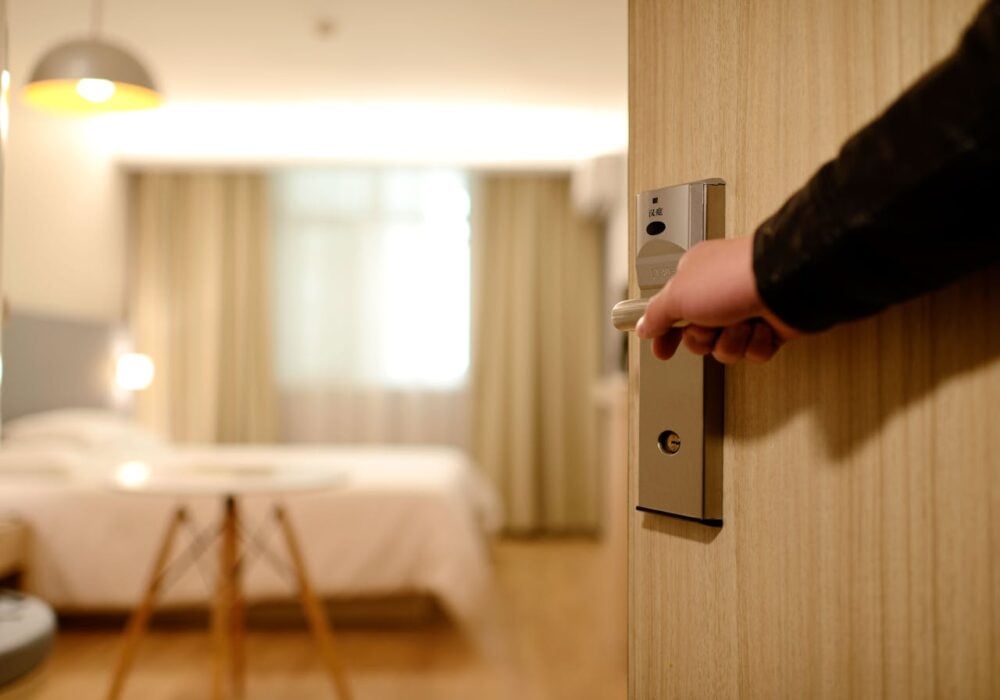
Locks and security features demand a quick check for peace of mind. Latch the door, operate safety chains, and examine windows for proper closure. Functioning security measures protect personal belongings and promote a sense of safety.
Faulty security undermines trust in the accommodation, affecting relaxation and enjoyment. Quickly notifying staff about security issues helps avert potential risks. With resolved security concerns, you can unwind, understanding both you and your possessions are secure.
7. Look for alternative power outlets to keep your devices charged efficiently.
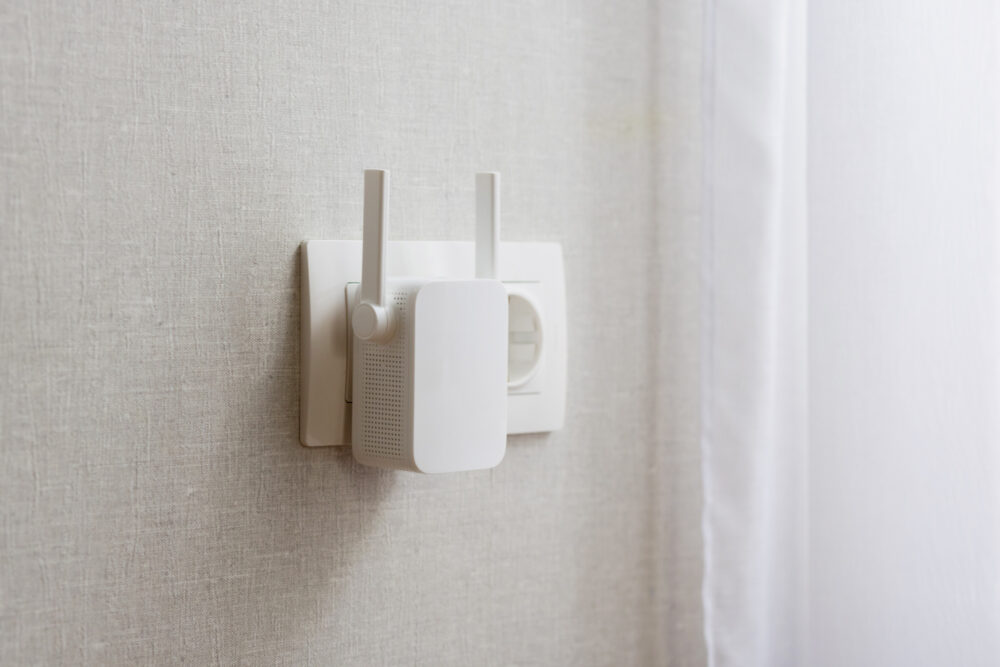
Locating power outlets enhances device charging efficiency. Scan the room to identify additional sockets beyond those in plain view. Often, extra outlets hide behind furniture or in unexpected locations.
A strategic search avoids slow charges or device sharing dramas later. Identifying multiple outlets at the start organizes and streamlines the charging process. Keeping devices powered ensures continued connectivity and convenience during the stay, avoiding unnecessary interruption.
8. Note the location of emergency exits and safety instructions posted nearby.
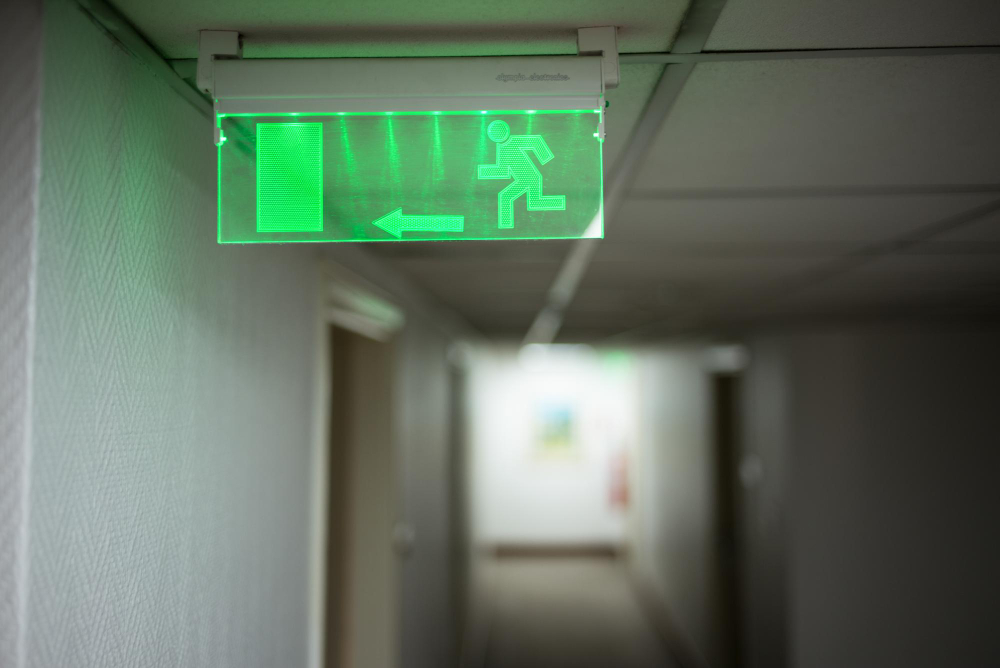
Observing emergency exits and safety instructions upon entry is crucial. Locate exit routes and review the posted evacuation map near the door. Familiarity with the layout enhances readiness in unforeseen circumstances.
Spatial awareness amplifies confidence and minimizes chaos during emergencies. Knowing exactly where to move in a crisis preserves safety and composure. With safety information mentally mapped, the room offers both refuge and assurance against potential risks.
9. Take photos of the room’s condition to avoid disputes at checkout.

Photographing the room’s condition at check-in serves as documentation for later. Images of existing damages can protect against disputes over liability. Light reflections on the polished table or scuffed corners in images anchor memory.
Visual records ease conversations during checkout, should discrepancies in condition arise. Documenting establishes baseline evidence, deterring excessive charges for inherited defects. Familiarity with initial conditions safeguards finances and affirms transparency in dealings with hotel management.
10. Request a room change politely if noise or lighting conditions feel unsuitable.

Requesting a room change, if noise or lighting disrupts, is best handled politely. Ambient disturbances, like street sounds or inadequate window coverings, intrude upon relaxation if unchecked. A gentle discussion can often lead to a room adjustment.
Adaptations should align with personal comfort to maximize restful experiences. The right ambiance caters to individual preferences for optimal peace. Skilled staff offerings alleviate discord, transforming a fundamental inconvenience into a solution and enhanced contentment.
11. Verify the minibar prices and contents to avoid unexpected charges later.

Verify minibar contents and pricing immediately to spot any surprises. Minibar snacks and beverages often come with high markups and can be easily overlooked. Jot down visible price lists as reference points.
Discrepancies can lead to unexpected charges later. Clarifying pricing beforehand lets guests make informed decisions about usage without anxiety. Understanding boundaries around minibar transactions avoids undesirable financial impacts and ensures decisions aligned with one’s budget.
12. Check the billing details on your final invoice for any inconsistencies.

Scrutinizing final invoice details ensures billing precision before leaving. Itemized charges need checking against initial quotes, bookings, or promotions used. Inconsistencies are an invitation for clarity.
Any surprise charges can often resolve swiftly with a simple discussion. Validate each charge to maintain financial peace of mind and uphold contractual terms. Proactive examination during checkout furnishes closure for a stay consistent with expectations and pre-arranged agreements.
